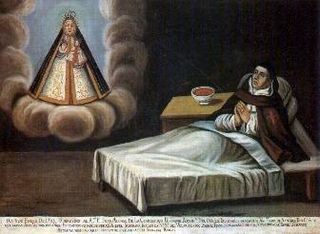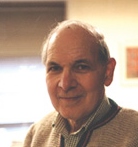Gnosis is the common Greek noun for knowledge. The term is used in various Hellenistic religions and philosophies. It is best known from Gnosticism, where it signifies a knowledge or insight into humanity’s real nature as divine, leading to the deliverance of the divine spark within humanity from the constraints of earthly existence.

A philosopher is someone who practices philosophy, which involves rational inquiry into areas that are outside either theology or science. The term "philosopher" comes from the Ancient Greek, φιλόσοφος (philosophos), meaning "lover of wisdom". The coining of the term has been attributed to the Greek thinker Pythagoras.

The cosmos is the universe. Using the word cosmos rather than the word universe implies viewing the universe as a complex and orderly system or entity; the opposite of chaos.
The cosmos, and our understanding of the reasons for its existence and significance, are studied in cosmology – a very broad discipline covering any scientific, religious, or philosophical contemplation of the cosmos and its nature, or reasons for existing. Religious and philosophical approaches may include in their concepts of the cosmos various spiritual entities or other matters deemed to exist outside our physical universe.

The meaning of a spiritual retreat can be different for different religious communities. Spiritual retreats are an integral part of many Hindu, Buddhist, Christian and Sufi (Islamic) communities.
The Pilgrim's Progress from This World, to That Which Is to Come is a 1678 Christian allegory written by John Bunyan. It is regarded as one of the most significant works of religious English literature, has been translated into more than 200 languages, and has never been out of print. It has also been cited as the first novel written in English.

Michael Novak was an American Catholic philosopher, journalist, novelist, and diplomat. The author of more than forty books on the philosophy and theology of culture, Novak is most widely known for his book The Spirit of Democratic Capitalism (1982). In 1993 Novak was honored with an honorary doctorate degree at Universidad Francisco Marroquín due to his commitment to the idea of liberty. In 1994 he was awarded the Templeton Prize for Progress in Religion, which included a million-dollar purse awarded at Buckingham Palace. He wrote books and articles focused on capitalism, religion, and the politics of democratization.

Ram Dass is an American spiritual teacher, former academic and clinical psychologist, and author of many books, including the seminal 1971 book Be Here Now. He is known for his personal and professional associations with Timothy Leary at Harvard University in the early 1960s, for his travels to India and his relationship with the Hindu guru Neem Karoli Baba, and for founding the charitable organizations Seva Foundation and Hanuman Foundation. He continues to teach via his website, produces a podcast through the help of 1440 Multiversity, and has mobile app development through the Be Here Now network and the Love, Serve, Remember Foundation.

The Philokalia is "a collection of texts written between the 4th and 15th centuries by spiritual masters" of the Eastern Orthodox Church mystical hesychast tradition. They were originally written for the guidance and instruction of monks in "the practice of the contemplative life." The collection was compiled in the eighteenth century by Nicodemus the Hagiorite and Macarius of Corinth.

Christian mysticism refers to the development of mystical practices and theory within Christianity. Mysticism is not so much a doctrine as a method of thought. It has often been connected to mystical theology, especially in the Roman Catholic and Orthodox Christianity.

In the study of religion, orthopraxy is correct conduct, both ethical and liturgical, as opposed to faith or grace etc. This contrasts with orthodoxy, which emphasizes correct belief, and ritualism, the practice of rituals. The word is a neoclassical compound—ὀρθοπραξία (orthopraxia) meaning 'correct practice'.

The Way of a Pilgrim, or The Pilgrim's Tale is the English title of a 19th-century Russian work, recounting the narrator's journey as a mendicant pilgrim while practising the Jesus Prayer. The pilgrim's travels take him through southern and central Ukraine, Russia, and Siberia. It is unknown if the book is literally an account of a single pilgrim, or if it uses a fictional pilgrim's journey as a vehicle to teach the practice of ceaseless inner prayer and communion with God. The Russian original, or a copy of it, was present at a Mount Athos monastery in Greece in the 19th century, and was first published in Kazan in 1884, under the Russian title that translates as "Candid Narratives of a Pilgrim to His Spiritual Father."

John Cassian, John the Ascetic, or John Cassian the Roman, was a Christian monk and theologian celebrated in both the Western and Eastern Churches for his mystical writings. Cassian is noted for his role in bringing the ideas and practices of Christian monasticism to the early medieval West.

Theology of the Body is the topic of a series of 129 lectures given by Pope John Paul II during his Wednesday audiences in St. Peter's Square and the Paul VI Audience Hall between September 5, 1979 and November 28, 1984. It constitutes an analysis on human sexuality. The complete addresses were later compiled and expanded upon in many of John Paul's encyclicals, letters, and exhortations.

Haqiqa is one of "the four stages" in Sufism, shari’a, tariqa, haqiqa and marifa.
The Way of Perfection is a 1577 book and a method for making progress in the contemplative life written by St. Teresa of Ávila, the noted Discalced Carmelite nun for the members of the reformed monastery of the Order she had founded.

Ascent of Mount Carmel is a 16th-century spiritual treatise by Spanish Catholic mystic and poet Saint John of the Cross. The book is a systematic treatment of the ascetical life in pursuit of mystical union with Christ, giving advice and reporting on his own experience. Alongside another connected work by John, entitled The Dark Night, it details the so-called Dark Night of the Soul, when the individual Soul undergoes earthly and spiritual privations in search of union with God. These two works, together with John's The Living Flame of Love and the Spiritual Canticle, are regarded as some of the greatest works both in Christian mysticism and in the Spanish language.
Discernment of Spirits is a term used in Orthodox, Roman Catholic and Charismatic (Evangelist) Christian theology to indicate judging various spiritual agents for their moral influence. These agents are:
- from within the human soul itself, known as concupiscence
- Divine Grace
- Angels
- Devils

James J. Martin, also known as Jim Martin, is an American Jesuit priest, a writer, and editor-at-large of the Jesuit magazine America. In 2017, Pope Francis appointed Martin as a consultant to the Vatican's Secretariat for Communications. Some of Martin's theological views, especially on homosexuality, are controversial in the Catholic Church.
In Christianity, the term state is used in various senses by theologians and spiritual writers.
"The Celestial Railroad" is short story written as an allegory by American author Nathaniel Hawthorne. In it, Hawthorne parodies the seventeenth-century book The Pilgrim's Progress by John Bunyan, which portrays a Christian's spiritual "journey" through life. In this story, the pilgrim journeys by iron horse rather than by foot, the burden of sin that Bunyan portrays is pulled by the same train, and Bunyan's figure Evangelist, preaching a message of conversion, is replaced by a figure known as "Mr. Smooth-it-away." Hawthorne mostly wrote against his own religious belief, popular at the time, Unitarianism or Transcendentalism, but according to some educators, several of his comments also indicate his dissatisfaction with Bunyan's religiously exclusive theology. In addition to this underlying view, however, he states "we were rushing by the place where Christian's burden fell from his shoulders at the sight of the Cross...for our burdens were rich in many things esteemed precious throughout the world." The story ends with the traveler's relief that what he'd seen was just a dream and an element of hope that is rare in Hawthorne's romantic era literature.














